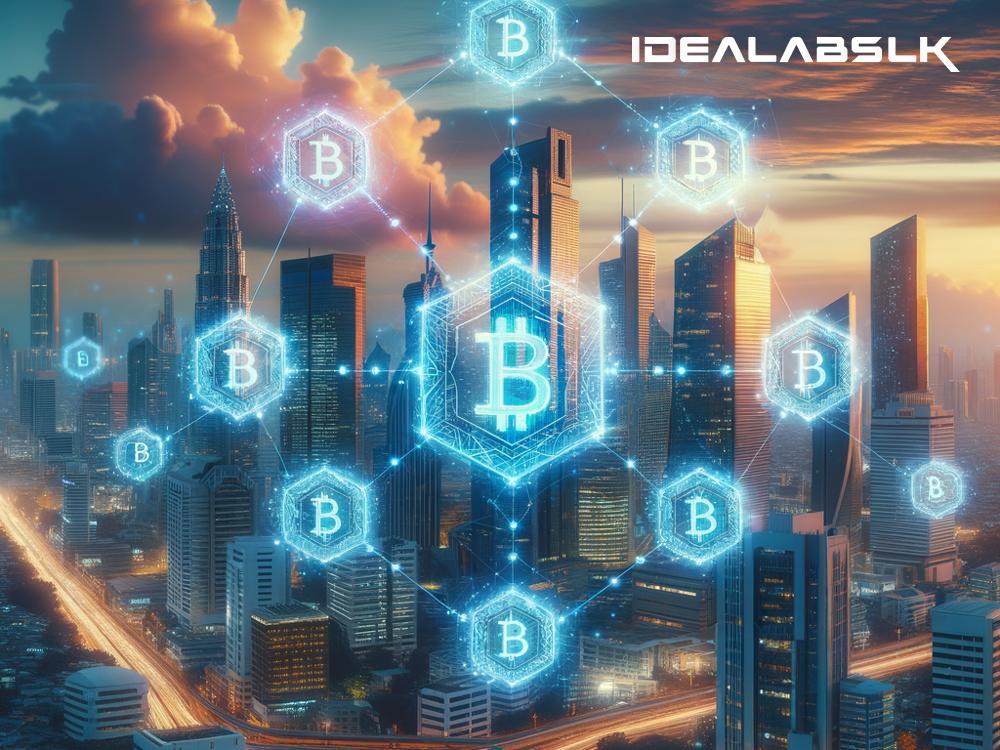Blockchain for Real Estate: Transforming Investment with Transparency and Security with AI
In the modern world, technology is redefining how we do everything, from communicating with loved ones to managing our finances. Real estate, one of the oldest and most significant sectors of the global economy, is no exception. The integration of Blockchain technology and Artificial Intelligence (AI) is set to revolutionize the real estate industry, promising to make investments more secure, transparent, and accessible than ever. Let’s dive into how these technological marvels are changing the game for real estate investors.
What is Blockchain?
Imagine a digital ledger that is completely secure, transparent, and decentralized. That's Blockchain for you. Once a piece of data is recorded in this ledger, it cannot be altered without the consensus of the network, making it incredibly secure. This technology, famous for underpining cryptocurrencies like Bitcoin, has far-reaching applications beyond digital currencies, including in the real estate sector.
The Challenges in Real Estate Investment
Real estate transactions are traditionally complex, paper-intensive, and opaque. They involve multiple parties such as buyers, sellers, banks, legal teams, and governments. This complexity often results in inefficiencies, such as lengthy processing times for transactions and loans, high transaction costs, and opportunities for fraud. Furthermore, the opaqueness in transactions can lead to unequal access to investment opportunities.
How Blockchain is Revolutionizing Real Estate
Blockchain introduces a high level of transparency and security to real estate transactions. Here's how:
-
Digital Titles and Transactions: With blockchain, property titles can be digitized, making transactions smoother and faster. This reduces the risk of fraud and errors, ensuring that property ownership is correctly recorded and easily verifiable.
-
Smart Contracts: These are self-executing contracts with the terms of the agreement directly written into code. In real estate, smart contracts can automate transactions like leasing, purchasing, or selling properties without the need for intermediaries, reducing costs, and increasing efficiency.
-
Tokenization: This involves dividing the property into digital shares, or tokens, that can be bought and sold on the blockchain. Tokenization makes real estate investment more accessible by allowing investors to purchase fractions of a property, lowering the entry barrier to the real estate market.
-
Improved Liquidity: Traditionally, real estate is a rather illiquid asset. However, with blockchain, the ease of transferring property ownership through digital tokens can significantly increase market liquidity.
The Role of AI in Enhancing Security and Transparency
While blockchain provides the foundation for secure and transparent transactions, AI takes things to the next level by adding a layer of intelligence to the process. Here’s how AI complements blockchain in real estate:
-
Predictive Analysis: AI can analyze vast amounts of market data to predict future market trends, helping investors make more informed decisions.
-
Property Valuation: Through machine learning algorithms, AI can accurately assess property values based on numerous factors, including location, amenities, and market conditions. This reduces the reliance on subjective human appraisals, leading to fairer pricing.
-
Fraud Detection: AI can scrutinize transactions for suspicious patterns, significantly lowering the risk of fraudulent activity in real estate transactions.
-
Personalized Investment Opportunities: By analyzing investor preferences and behavior, AI can offer personalized property recommendations, ensuring that investors find opportunities that best match their goals.
The Future Is Here
The integration of blockchain and AI in real estate is not a distant dream; it's already happening. Startups and established companies alike are developing innovative solutions that utilize these technologies to make real estate investment more accessible, efficient, and secure. As the industry continues to evolve, the potential for disruption and transformation is vast.
Wrap Up
The fusion of blockchain and AI is poised to make the real estate sector more transparent, secure, and investor-friendly. By digitizing transactions, automating processes, and personalizing investment opportunities, these technologies are opening new doors for both seasoned and novice investors. As we move forward, embracing these innovations could very well redefine what it means to invest in real estate. The future of real estate investment, powered by blockchain and AI, promises a world where transactions are not only secure and transparent but also more equitable and accessible to investors around the globe.

